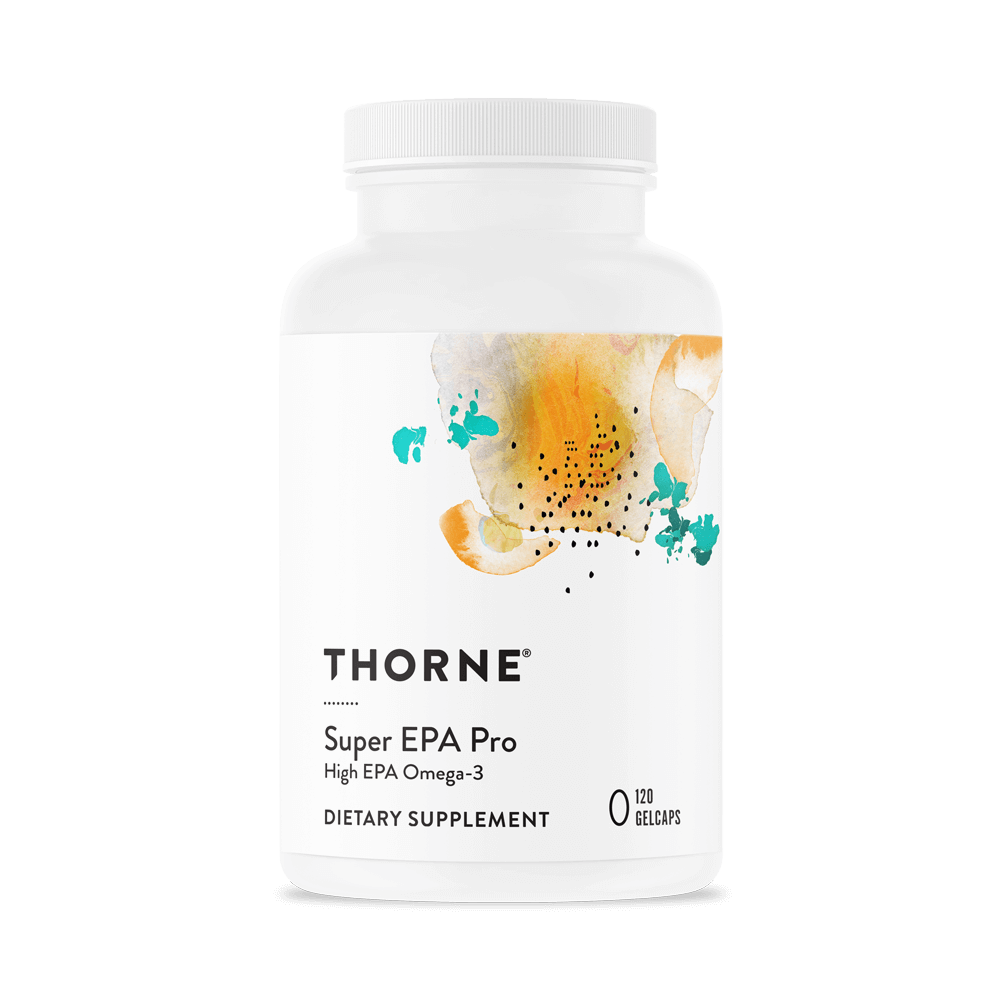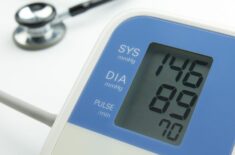Overview
DHA (docosahexaenoic acid) and EPA (eicosapentaenoic acid) are omega-3 fatty acids with many health benefits for you and your baby.
Unfortunately, the American diet is currently high in saturated fat and low on these omega-3 fatty acids.
This may be caused by the high consumption of highly processed foods and fast food meals with fewer essential fatty acids than home-cooked meals and nutrient-dense meals, especially fish. (1)
If you’re pregnant or breastfeeding, it’s recommended that you take a higher dosage of omega-3s.
Let’s go over the benefits of EPA and DHA in omega-3 fish oils and see how you could meet the recommended amounts.
What Are Omega-3 Essential Fatty Acids?
There are two groups of omega-3 fatty acids:
- Long-chain polyunsaturated fatty acids
- Short-chain polyunsaturated fatty acids
Long-Chain PUFAs (Polyunsaturated Fatty Acids)
DHA (docosahexaenoic acid) and EPA (eicosapentaenoic acid) are long-chain polyunsaturated fatty acids found in oily marine sources such as anchovies, sardines, and wild salmon.
- DHA supports brain, eye, and central nervous system development. That’s why it’s also important for pregnancy and lactation.
- EPA supports the heart, immune system, and inflammatory response.
EPA and DHA are the key fatty acids in omega-3. These essential nutrients always work together in maintaining good health throughout your life. (2)
They are also essential for:
- Brain development
- Eye (retina) development
- Nervous system development
- Maintaining a healthy cardiovascular system
- Maintaining normal triglyceride levels
Short-chain PUFAs (Polyunsaturated Fatty Acid)
ALA (alpha-linolenic acid) has less potent health benefits compared to DHA and EPA.
This is because your body uses ALA to produce energy. However, to further harness its full benefit, your body must further convert ALA to DHA and EPA. (1)
Your body cannot produce ALA, but you can get them through food or dietary supplements. They can be found in plant sources like chia or flax seeds.
Which Foods Contain Omega-3 Fatty Acids?
You may obtain omega-3 fatty acids naturally from a variety of foods such as:
Coldwater Fatty Fish
- Salmon
- Mackerel
- Herring
- Sardines
- Anchovies
- Halibut
- Rainbow trout
Other Oily Fish And Shellfish
- Mussels
- Oysters
- Swordfish
Nuts And Seeds
- Flaxseeds
- Chia seeds
- Pumpkin seeds
- Walnuts
- Hazelnuts
- Peanuts
Vegetable Oils
- Flaxseed oil
- Algal oil
- Perilla oil
- Olive oil
Fortified Foods
- Infant formulas
- Milk
- Juices
- Eggs
Cod liver oil is also rich in both EPA & DHA. However, it may also have high levels of Vitamin A that may harm your baby and lead to spontaneous abortion when taken at high levels. (3)
Why Are Omega-3 Fatty Acids Important?
These fatty acids are essential nutrients your body needs but can’t produce on its own. Thus, you have to obtain them from food or dietary supplements.
DHA and EPA may play an important role in these conditions:
(MS) Multiple Sclerosis
- MS is a potentially incapacitating disease of the central nervous system.
- Omega-3 may have protective effects on the brain and nervous system and may help in MS therapy. (4)
Prostate Cancer
- A 2013 study found that eating food rich in omega-3 may help prevent prostate cancer. (5)
Various Neuropsychiatric Disorders
Studies suggest that EPA+DHA could help manage: (6)
- ADHD (attention deficit hyperactivity disorder)
- PTSD (post-traumatic stress disorder)
- Parkinson’s disease
- Depression
- Dementia
- Schizophrenia
Cardiovascular Diseases
Fish oil supplementation may help reduce the risk of heart disease, stroke, and heart failure.
The fatty acids in omega-3 help regulate: (7)(8)
- Triglyceride level in the liver: high triglyceride levels increases the risk of heart disease
- Cholesterol: omega-3 raises levels of the good cholesterol HDL (high-density lipoprotein)
- High blood pressure
A 2013 study showed that taking fish oil supplements for more than one month improves cardiovascular function during mentally stressful tests. (9)
Atherosclerotic Lesions
- Symptoms of this condition include damage to the walls of your arteries, including thickened or deformed walls.
- With their anti-inflammatory properties, fish oils can reduce plaque in the arteries. (10)
Vision Loss
- A 2102 study published in ARVO Journal showed that mice that received omega-3 supplements have better eye health and a reduced risk of age-related vision loss. (11)
- Another study showed that participants who ate fruits, vegetables, and two fish servings might have better eyesight in old age. (12)
Eczema
- Also known as a form of dermatitis, eczema causes dry and itchy inflammation on the skin.
- Its symptoms worsen with stress.
- A 2016 study showed that symptoms of eczema improved by about 23% after more than eight weeks of omega-3 supplementation. (13)
Lupus
- It’s a condition wherein the body’s immune system attacks its own tissues and organs.
- Supplementing with omega-3s may help improve outcomes in patients with lupus. (14)
Depression And Anxiety
- Studies show that regular intake of EPA and other omega-3s may have therapeutic effects on people with depression and anxiety. (15)(16)
Inflammation
- Your body responds to infections and damages by giving signals to the immune system to heal, repair, or fight invaders like viruses and bacteria.
- Inflammation becomes a problem if it goes on for too long or happens in areas in your body where they are not needed.
- It’s linked to heart disease and autoimmune disorders.
- EPA+DHA promotes series-3 prostaglandins. This type of prostaglandin is a good type that reduces inflammation and improves blood flow.
- Studies showed that increased DHA intake could help your body manage chronic inflammation. (17)
Age-Related Mental Decline
- Studies have associated intake of omega-3 in reduced risks of age-related mental decline.
- These essential nutrients may even reduce the risk of Alzheimer’s disease (an irreversible, progressive brain disease that destroys a person’s memory and cognitive skills). (18)
Fatty Liver
- This condition is linked to obesity and diabetes.
- NAFLD (non-alcoholic fatty liver disease) is the most common liver disease.
- Omega-3 may reduce liver fat and inflammation in patients with NAFLD. (19)(20)
Osteoporosis And Arthritis
- Omega-3 fatty acids can boost levels of calcium in your bones, too.
- This may help reduce your risk of osteoporosis. (21)
- Omega-3 fish oil supplements may also reduce inflammatory arthritis (characterized by joint inflammation). (22)
Menstrual Pain
- Omega-3 may be more effective than Ibuprofen in alleviating primary dysmenorrhea or severe menstrual pain. (23)
Sleep Problems
- In a 2014 randomized controlled trial, intake of omega-3 fatty acids may have helped improve study subjects’ length and quality of sleep, particularly children. (24)
Skin Problems
EPA may help your skin by: (25)
- Managing oil production
- Hydrating your skin
- Reducing premature aging
- Reducing the risk of acne
- Protecting your skin from sun damage
Is EPA Important During Pregnancy?
You’re at a higher risk for omega-3 deficiency during your prenatal period because of the increased demand to meet your developing baby’s needs.
So, it’s important to have enough levels of omega-3s, especially EPA and DHA, before, during, and even after pregnancy, especially if you’re breastfeeding.
Here are the benefits of fish oil omega-3s for you and your baby:
Reduced Risk Of Preterm Birth
Did you know that preterm birth is the leading cause of infant mortality in the US?
Preterm births are associated with increased risks of long-term conditions such as: (26)
- Visual impairment
- Developmental delays
- Autism
- Learning difficulties
Various factors can cause preterm birth, including increased levels of prostaglandins (hormones that trigger the inflammatory response of your body).
Increased prostaglandin levels during pregnancy can initiate labor by encouraging your cervix to open.
EPA and DHA may help increase the length of your gestation by reducing prostaglandin levels in your body. (27)
Benefits In Your Baby’s Brain And Cognitive Development
Sufficient intake of omega-3 during pregnancy has many benefits to your baby’s brain.
Your child may have an advantage in: (28)
- Performing well in cognitive tasks
- Having better communication and social skills
- Having fewer behavioral problems
Reduced ADHD Risk In Children
- A 2014 study showed that children of moms who took prenatal DHA during the first trimester of pregnancy may have a decreased risk of ADHD, autism, and cerebral palsy. (28)
- A 2012 placebo-controlled study showed that these may also help decrease kids’ hyperactivity and aggression. (29)
Reduces Risk Of Developing Asthma
- Studies suggest that EPA and DHA may lower your child’s risk of developing asthma due to their anti-inflammatory properties. (30)
Reduced Risk Of Preeclampsia
- Preeclampsia is a dangerous pregnancy condition.
- Its symptoms include high blood pressure and damages to organ systems (like the kidney and liver).
- Deficiency in omega-3 has been linked to the risk of this serious pregnancy complication. (31)
Reduce Risk Of Depression
- There’s a possible link between omega-3 deficiency and an increased risk of postpartum depression. (32)
- During the third trimester of pregnancy, your baby’s need for DHA increases because a large amount of brain, eye, and nervous system development happens at this time.
- The depleted DHA levels can put you at risk of developing postpartum depression. (33)
- You might also have worse and earlier postpartum depression in succeeding pregnancies. (32)
Better Attention Span In Children
- Moms with higher blood levels of DHA during pregnancy may have babies with better attention span well into their toddler years. (34)
Higher Birth Weight and Height
DHA supplementation during pregnancy may help your baby have a heavier weight and height at birth. (35)
Fish Oil During Pregnancy: Is It Safe?
According to the WHO (World Health Organization), fish oil supplements don’t appear to cause any serious side effects or discomforts, except fishy burps (unpleasant taste in your mouth and bad-smelling burps). (36)
Fish are a vital source of DHA and other omega-3 fatty acids.
But according to the FDA (Food and Drug Administration), many types of fish have high methylmercury levels, which can be harmful to your baby. (37)
These harmful contaminants accumulate more in fish meat than in fish oil.
Most fish oils are processed in a way that removes contaminants. Still, you should check if your supplement is low in contaminants, especially heavy metals such as mercury.
If you’re allergic to fish, seek advice from your doctor before using fish oil capsules and supplements.
Fish Oil For Breastfeeding Moms
DHA remains a vital nutrient for your baby up to two years of age. That’s because your child’s brain development continues up to this time.
As you breastfeed your baby, your DHA reserve can get depleted. So, you should continue supplementing with this fatty acid even after giving birth.
How Should I Choose My Fish Oil Supplement?
APA (American Pregnancy Association) has the following guidelines for quality fish oils:
- The manufacturer should provide third-party lab results to show the purity of their fish oil.
- A good quality fish oil supplement should not smell fishy or rancid.
- Your supplement should not contain PCBs (polychlorinated biphenyls), toxic chemicals that can seriously affect fetal and postnatal growth.
- High-quality fish oils should not taste fishy. Look out for strong or artificial flavors that may have been added to hide rancidity. (38)
Always choose high-quality fish oil supplements.
Some of these are the following:
Nordic Naturals Prenatal DHA – (90 soft gels)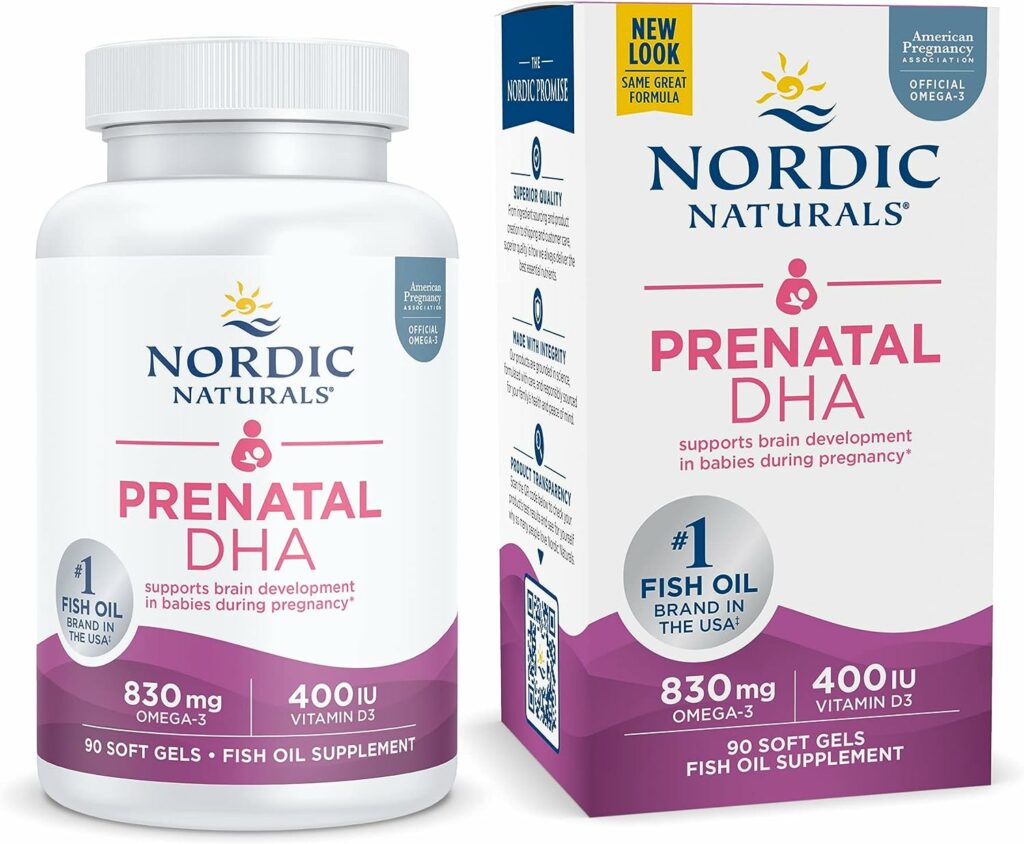
Nordic Naturals Arctic Cod Liver Oil – (90 soft gels)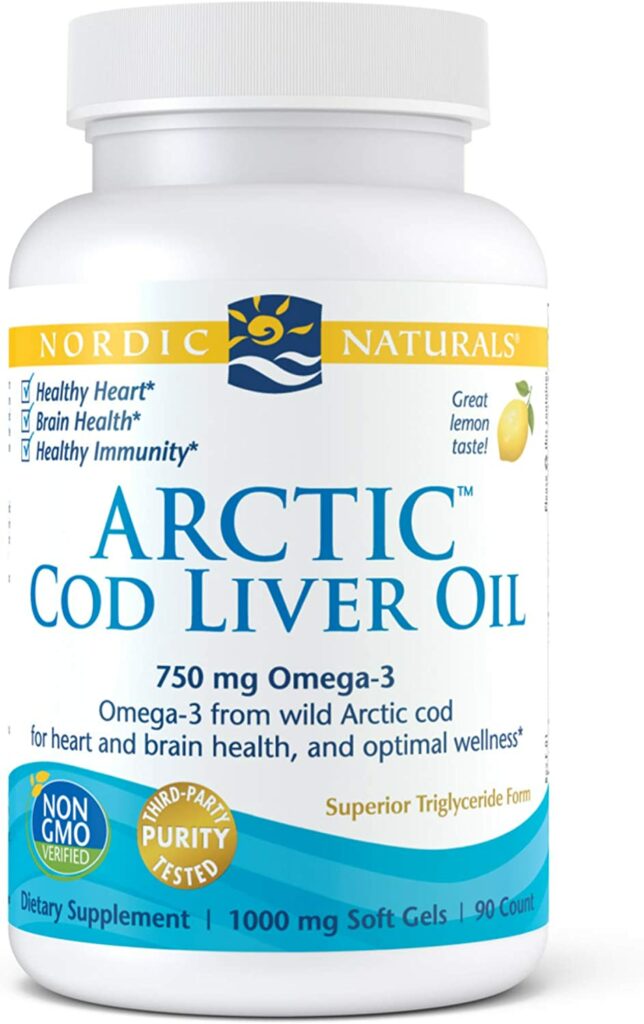
Nordic Naturals Ultimate Omega 2X w/ Vitamin D3 – (60 soft gels)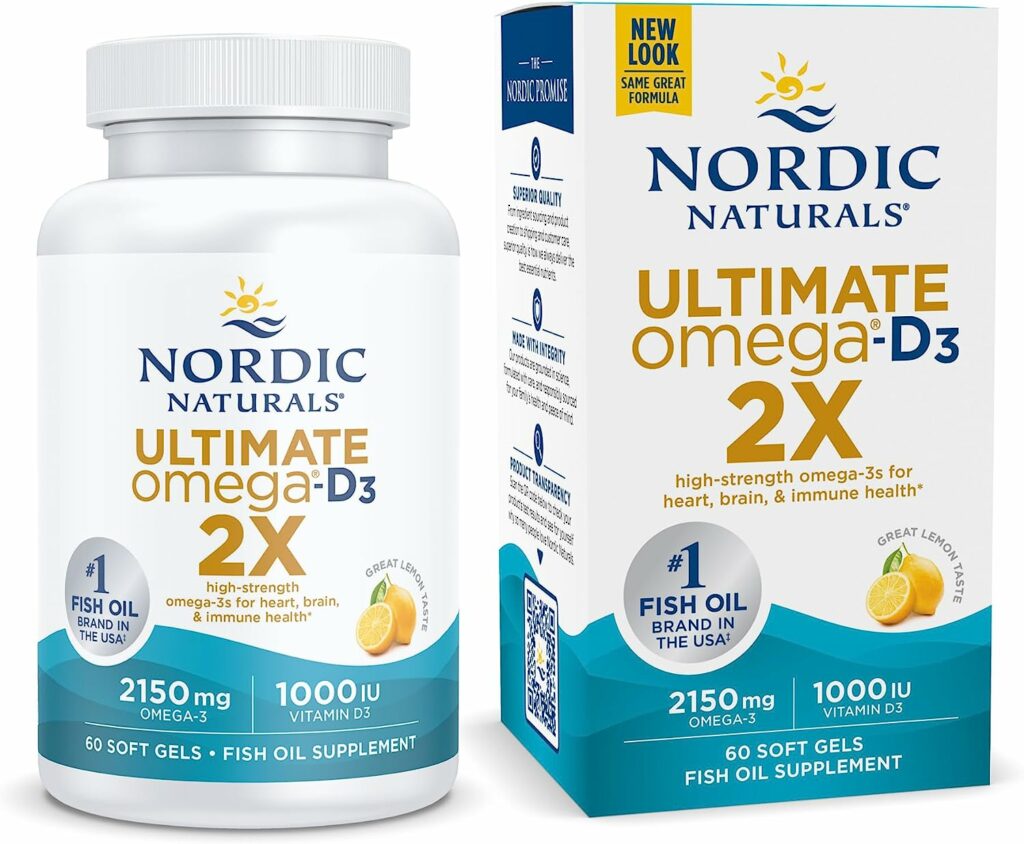
Carlson EcoSmart Omega-3 Fish Oil – (90 soft gels)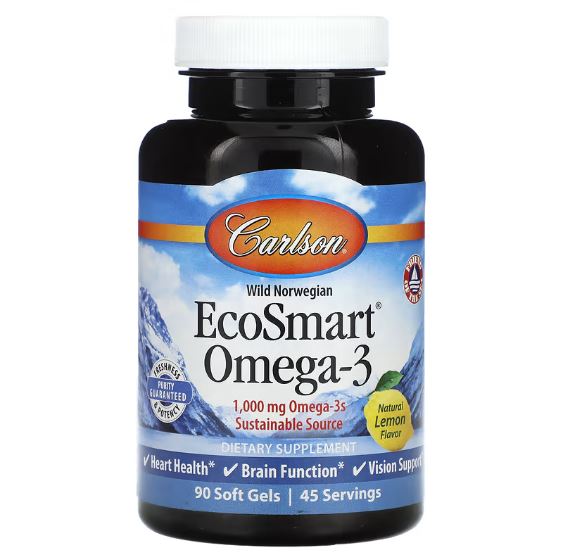
Carlson Labs The Very Finest Fish Oil – (16.9 ml bottle)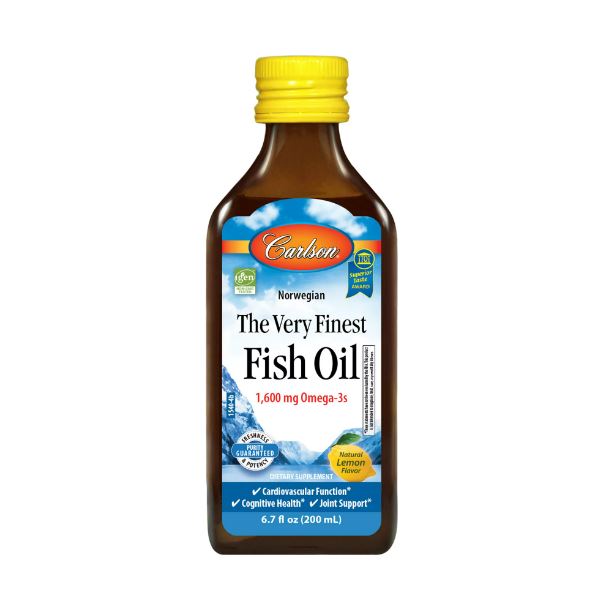




Thorne Super EPA Pro – (60 Capsules)
How Much DHA And EPA Should I Take During Pregnancy?
WHO (World Health Organization) recommends at least 300 mg EPA+DHA per day for pregnant women and lactating moms. The supplement should have at least 200 mg of DHA. (39)
Remember, your baby can easily deplete your reserve of these fatty acids. Researchers suggest increasing your intake to at least 1000 mg DHA+EPA if you’re pregnant or breastfeeding. (40)
When purchasing fish oils, always check for the levels of DHA and EPA because they are not the same as the amount of fish oil.
Prenatal vitamins are also possible sources of DHA or EPA. You just need to check the labels if they contain one or both of these fatty acids.
More importantly, it’s best to consult your health care provider before using EPA or DHA supplements and advice on appropriate dosages.
What Can Happen If I’m Deficient in DHA and EPA?
The following are possible symptoms of DHA and EPA deficiency: (41)
- Joint pain
- Fatigue
- Dry and/or itchy skin
- Brittle hair and nails
- Depression
- Poor concentration
- Frequent colds
Note that these symptoms are also associated with other health conditions or nutrient deficiencies.
This may be among the reasons why many people don’t know that they are deficient in omega-3.
How Can I Get Enough Omega-3s If I’m A Vegetarian?
People on vegetarian diets need higher levels of omega-3s because they’re not eating fish and other foods rich in omega-3 fats.
That’s because plant-based omega-3s are in the form of ALA. Your body naturally converts this ALA into EPA+DHA, but the process is slow and may be inefficient.
Still, plant foods and plant-based supplements are your options in meeting your EPA and DHA needs if you’re a vegetarian. For example, you can choose green leafy vegetables, nuts, and seeds.
There’s no separate recommendation for fatty acid intake for vegetarians. So, researchers suggest doubling your current dietary ALA intake from food sources and supplements. (42)
Is Too Much EPA Bad During Pregnancy?
Taking too much EPA may also be bad during pregnancy. Studies suggest that it may harm your baby’s development and can even lead to a shorter life span. (43)
REFERENCES
(1) https://www.ncbi.nlm.nih.gov/pmc/articles/PMC3262608/
(2) https://www.hsph.harvard.edu/nutritionsource/what-should-you-eat/fats-and-cholesterol/types-of-fat/omega-3-fats/
(3) https://www.ncbi.nlm.nih.gov/pmc/articles/PMC6470929/
(4) https://pubmed.ncbi.nlm.nih.gov/31462182/
(5) https://www.ncbi.nlm.nih.gov/pmc/articles/PMC3828934/
(6) https://pubmed.ncbi.nlm.nih.gov/15865053/
(7) https://www.ncbi.nlm.nih.gov/pmc/articles/PMC3563284/
(8) https://www.ncbi.nlm.nih.gov/pmc/articles/PMC3217043/
(9) https://journals.physiology.org/doi/full/10.1152/ajpregu.00031.2013
(10) https://www.ncbi.nlm.nih.gov/pmc/articles/PMC3279313/
(11) https://pubmed.ncbi.nlm.nih.gov/22427551/
(12) https://pubmed.ncbi.nlm.nih.gov/30312575/
(13) https://www.ncbi.nlm.nih.gov/pmc/articles/PMC5006549/
(14) https://pubmed.ncbi.nlm.nih.gov/32973753/
(15) https://pubmed.ncbi.nlm.nih.gov/18247193/
(16) https://www.ncbi.nlm.nih.gov/pmc/articles/PMC3976923
(17) https://pubmed.ncbi.nlm.nih.gov/12480795/
(18) https://pubmed.ncbi.nlm.nih.gov/19262590/
(19) https://www.ncbi.nlm.nih.gov/pmc/articles/PMC4462685/
(20) https://pubmed.ncbi.nlm.nih.gov/22023985/
(21) https://pubmed.ncbi.nlm.nih.gov/9624425/
(22) https://pubmed.ncbi.nlm.nih.gov/10377605/
(23) https://www.ncbi.nlm.nih.gov/pmc/articles/PMC3770499/
(24) https://pubmed.ncbi.nlm.nih.gov/24605819/
(25) https://pubmed.ncbi.nlm.nih.gov/20620762/
(26) Fett, R. (2019). Brain Health from Birth: Nurturing Brain Development During Pregnancy and the First Year. Franklin Fox Publishing LLC.
(27) https://www.ncbi.nlm.nih.gov/pmc/articles/PMC3046737/
(28) https://pubmed.ncbi.nlm.nih.gov/24581674/
(29) https://pubmed.ncbi.nlm.nih.gov/22596014/
(30) https://www.ncbi.nlm.nih.gov/pmc/articles/PMC3827145/
(31) https://pubmed.ncbi.nlm.nih.gov/7619928/
(32) https://www.ncbi.nlm.nih.gov/pmc/articles/PMC3146889/
(33) https://www.ncbi.nlm.nih.gov/pmc/articles/PMC2989696/
(34) https://www.ncbi.nlm.nih.gov/pmc/articles/PMC3752039/
(35) https://pubmed.ncbi.nlm.nih.gov/23426033/
(36) https://www.who.int/elena/titles/bbc/fish_oil_pregnancy/en/
(37) https://www.fda.gov/food/consumers/advice-about-eating-fish
(38) https://americanpregnancy.org/healthy-pregnancy/pregnancy-health-wellness/omega-3-fish-oil-and-pregnancy-986/
(39) https://www.who.int/nutrition/topics/FFA_summary_rec_conclusion.pdf?ua=1
(40) https://www.ncbi.nlm.nih.gov/books/NBK501898/
(41) https://ods.od.nih.gov/factsheets/Omega3FattyAcids-HealthProfessional/
(42) https://pubmed.ncbi.nlm.nih.gov/25369925/
(43) https://www.ncbi.nlm.nih.gov/pmc/articles/PMC2839050/



